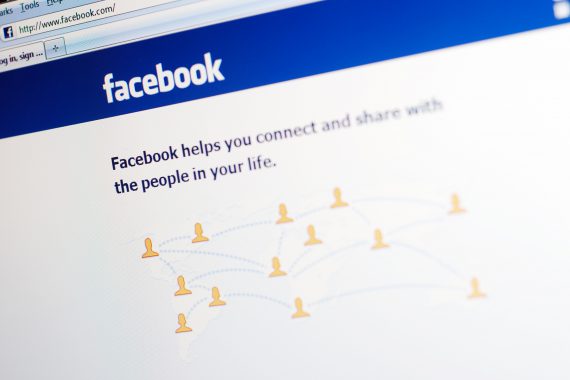Should your practice have a Facebook page?


A recent study concluded that GP practices should set up an official Facebook page, to help capture patient feedback and avoid problems arising from unofficial pages. But is it worth the hassle?
Virginia Patania explains how her practice manages its official Facebook page successfully.
Why did you set up a Facebook page?
People access information about GP surgeries through different avenues. Reaching out in the greatest number of ways can only increase the patient population you’re able to access. When I started our Facebook page in 2014, we’d had our MPIG funding stream removed so it was initially set up in the name of our campaign. There was a lot of publicity about us at the time in the national press, and Channel 4 was filming a documentary with us. So we felt we needed a very responsive, visible platform to update patients about how the campaign was developing.
We then kept the page going, because the positive response felt like a big win. Now, we use it to share real-time news with our patients, for example to inform them the phone lines are temporarily down or when the next PPG meeting is.
What is the feedback from patients?
It has been well received. Without doubt it gets hits, comments, messages and likes, so as one of the many ways to engage with patients it serves its purpose. Of our 11,800 patients a few hundred use our Facebook page, but our reach goes far beyond the number of likes we get. I would now feel we were not providing an adequate service if patients couldn’t find us on Facebook, if that is their chosen way of getting in touch.
How do you measure how successful or useful it is?
We don’t, really. But I would say it’s successful in terms of covering all bases to engage with our patients. Being an NHS business, it isn’t my aim to promote active use of any of our services, but we’re trying to provide a light-touch way for people to get in touch and to that effect, it is really useful. For example, many people who use the page aren’t necessarily on our patient list, but have questions about registration or our catchment area; it’s an easy way to deal with enquiries.
Who should monitor a practice’s Facebook page, and how often?
At our practice it was only me who updated and moderated the page initially, but now about eight members of staff have permissions to post content and moderate it. Anyone could in theory do it – but it’s mainly our GPs and admin staff.
We operate a model of leadership called holacracy, so we don’t have a practice manager; instead every team, which we call Circle, self-manages its own ‘service lines’ – such as the diabetes Circle, the HR Circle or the carers Circle. If there is a service line that wants to post an update, for example an invite to a special Saturday flu vaccination clinic, the relevant team can do it themselves via the Facebook page.
As I check my own profile, I’ll check my practice’s. Most of us live with constant contact with social media, so for many it will not be an extra, time-consuming task.
Are there any downsides?
Facebook is very public, and there is a possibility that a member of staff could use or update it in a way that isn’t aligned to the practice’s ethos or vision. That said, it only takes a second to log on and correct or delete a post or comment.
We have had user comments that required some managing, and in one instance we contacted the patient and asked that the comment be removed.
I believe restricting access points for the sake of potential misuse is a very misconceived notion of good management. Closing our Facebook page would be like plugging one hole in a colander: people could still post inappropriate comments on NHS Choices or through Twitter.
On occasion, patients have revealed information about themselves. It’s their choice to be sharing that and if they’re happy with it, then we’re happy with it.
We have messages in which patients tell us about a condition or symptom, or ask a clinical question, but in four years of having the Facebook page they have never been public. People manage their own confidentiality as they see fit.
What sort of practice would benefit from hosting a Facebook page?
There will be practices whose demographic is more au fait with digital technology and these are likely to see a benefit. But the fastest-growing segment of the digital access market is the over-70s age group, so that distinction between who is or isn’t suited will fade over time.
So I think every practice could – and should – do it.
To be seen to be reaching out in every possible way would probably be a very welcome thing for a CQC inspection as well.
Whatever your profile, a Facebook page makes GP surgeries feel much more part of a community and less part of a clinical set-up and a ‘business of the diseased’. There is something very human about a GP practice that posts pictures, links, articles and updates; it increases the sense of approachability for patients, which can also help with messages for prevention and self-care, and reinforces the sense of your GP practice being relevant, holistic, and connected to other parts of daily life.
Virginia Patania is transformation manager at the Jubilee Street Practice in east London









